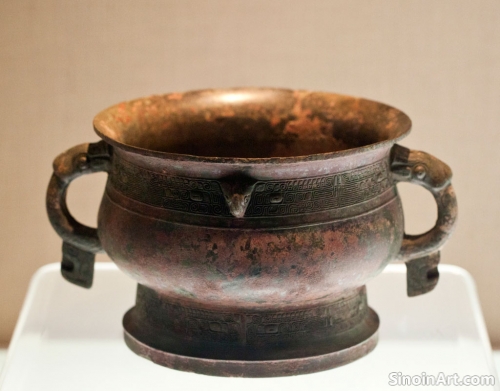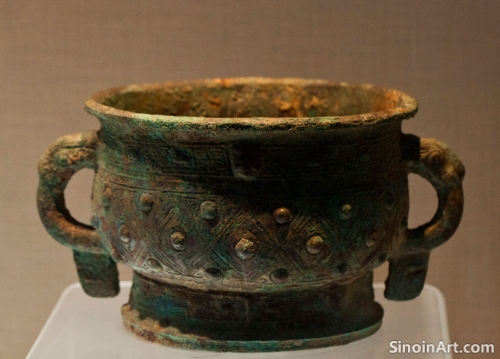The Symbolic Significance of Bronze in Ancient Chinese Power Structures: Ritual, Authority, and Legitimacy
|
Bronze ware in ancient China served not only practical and artistic purposes but also played a central role in the assertion and maintenance of power, serving as a potent symbol of ritual authority, social status, and political legitimacy. The control over the production and use of these objects was key to defining political power. The possession of bronze and the power associated with it helped to shape social and political structures in ancient China.  The use of bronze in ritual ceremonies was closely tied to the authority of the ruler and the ruling class, as they were seen as having a divine right to communicate with the ancestors and the heavens through the medium of these sacred objects. The possession and management of these artifacts was a powerful symbol of their connection to both the earthly and spiritual realms. The use of these objects in ritual performance helped to emphasize the importance of the social and political structure.  The elaborate decorations and inscriptions on bronze vessels often served to reinforce the legitimacy of the ruling dynasty, conveying messages of power, prosperity, and divine mandate. These objects were carefully designed to communicate specific messages to the viewing audience. The possession of these finely crafted and powerfully symbolic objects also helped to underscore the power and status of their owners.  Bronze weapons, while used in warfare, also served as symbols of military might and the authority to command, further solidifying the power of rulers and warriors. These powerful objects were used as symbols of both military prowess and also status and political authority. The power associated with bronze weapons helped to solidify the ruling power structure. The study of bronze ware in relation to ancient Chinese power structures highlights the complex interplay between material culture, political ideology, and the desire to legitimize authority. The power of both visual presentation and also ritual performance were key elements in the ancient Chinese understanding of the political order. |
Tag : bronze power, ancient Chinese authority, ritual legitimacy, social structure, political symbolism
Related information
- Bronze Ware and Ancient Chinese Philosophy: Exploring the Connection Between Material Culture and Intellectual Thought
- The Use of Bronze in Ancient Chinese Water Management Systems: Irrigation and Hydraulic Engineering
- The Use of Bronze in Ancient Chinese Transportation: Chariot Decoration and the Display of Power
- The Enduring Legacy of Chinese Bronze Ware: A Timeless Art Form and Cultural Treasure
- Bronze Ware and Ancient Chinese Textile Production: Spindle Whorls, Weaving Tools, and Textile Art
This article explores the connection between bronze ware and ancient Chinese philosophy, highlighting how Confucian, Daoist, and Legalist ideas influenced the forms, designs, and symbolic meanings of these objects, demonstrating the interplay between material culture and intellectual thought.
This article explores the use of bronze in ancient Chinese water management systems, highlighting its role in irrigation, hydraulic engineering, and the creation of tools and components that helped to control and manage water resources for agriculture.
This article explores the use of bronze in ancient Chinese chariot decoration, highlighting its role in communicating power and status, the visual symbolism used, and how these decorative elements enhanced both the aesthetic appeal and also the political message of these important vehicles of transport.
This article reflects on the enduring legacy of Chinese bronze ware, highlighting their combination of technical skill, artistic beauty, and historical significance, their power to tell stories from the past, and the importance of their preservation for future generations.
This article explores the use of bronze in ancient Chinese textile production, highlighting its role in creating spindle whorls, weaving tools, decorative elements, and the interplay between metalworking and textile crafts.